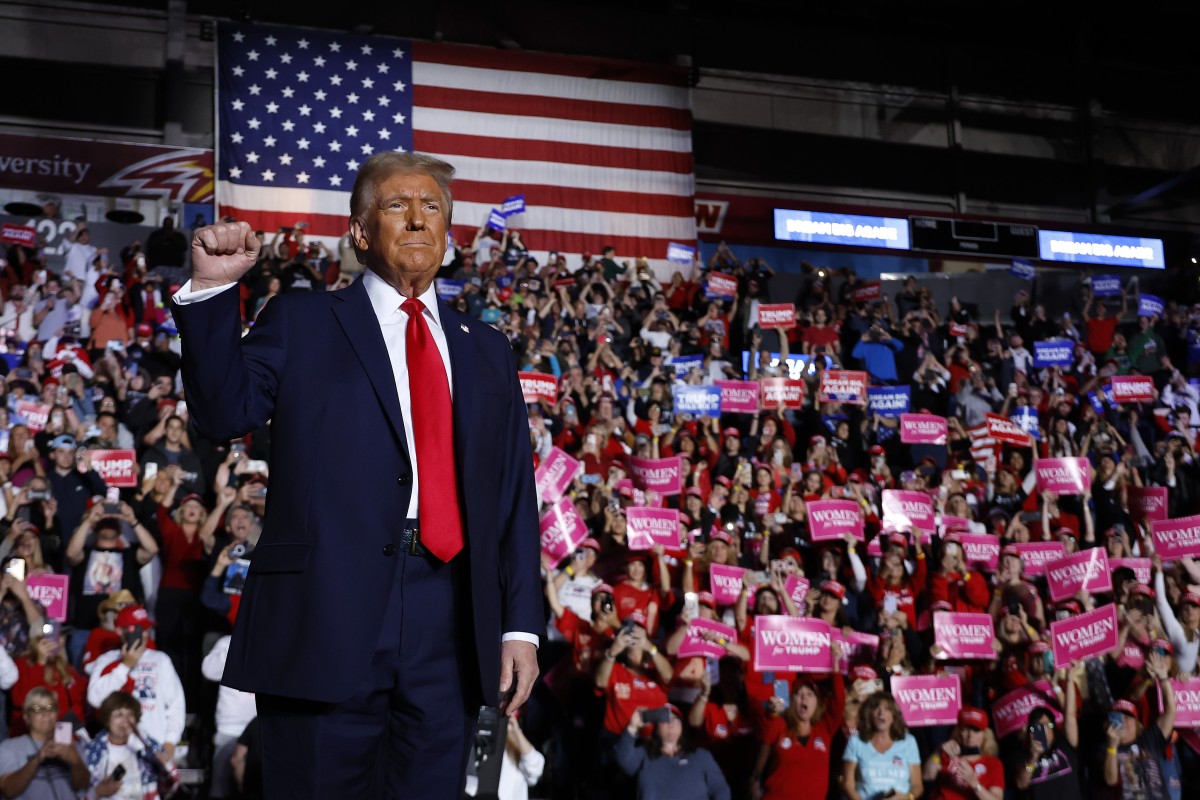
Donald Trump's landslide victory in the US elections has significantly impacted major financial assets. The dollar, bitcoin, and stock indices surged following the Republican candidate's win, which had caught financial markets by surprise, given the close race reflected in the polls. The greenback experienced its strongest rally since the pandemic, while bitcoin and key Wall Street indices reached record highs.
Bitcoin hits all-time highs
Bitcoin has emerged as the clear winner after the US elections. The leading cryptocurrency surged sharply following the election results, reaching new all-time highs during the session on 6 November. It surpassed the $76,000 mark, marking an increase of over 7%. Ethereum, the second-largest cryptocurrency, also saw a notable rebound, climbing nearly 10% to settle around $2,700.
The buying frenzy is fueled by Trump’s strong support for the cryptocurrency sector. He aims to establish the U.S. as the global hub for digital currencies, with ambitious proposals like creating a Bitcoin reserve.
Additionally, the new administration could ease regulatory pressures on cryptocurrencies, potentially freeing them from the restrictive oversight of the US Securities and Exchange Commission (SEC), whose chairman has been criticised for his stringent stance. In this favourable environment, firms like Bernstein and Standard Chartered predict Bitcoin could reach between $90,000 and $100,000 by year-end.
The dollar is experiencing its biggest rise since Covid-19
At the start of the day, the dollar surged by nearly 2% following Trump’s victory, marking its largest increase since 2020, when it spiked at the onset of the Covid-19 pandemic. However, the reasons behind this rise are now very different. The greenback is soaring due to expectations of stronger economic growth driven by more aggressive spending policies, rising inflation and expanding deficits.
On the flip side, the euro has weakened. The currency of much of the European Union is bracing for a shift in the economic landscape with the world’s largest economy. The clear possibility that Trump will extend his trade war beyond China is weighing heavily on the common currency.
US bonds continue to climb
The yield on the 10-year US Treasury bond (which moves inversely to prices) continues its relentless rise today. At one point, it surpassed 4.7%, well above the year’s lows of 3.65% set in September, although it later stabilised around 4.3% for the remainder of the session. Despite expectations that the Federal Reserve may lower rates this week, the outlook for a significant increase in public spending, which is expected to widen the budget deficit, is driving bond yields higher.
Trump’s victory has dampened expectations for a swift reduction in US interest rates in the coming months, a shift that could also affect the eurozone. Today, European bond yields are slightly lower, with Spain’s 10-year bond at 3.63% and Germany’s at 2.39%.
American stock market rises while Europe declines
American index futures had already signalled a bullish day on Wall Street, with hopes of reaching historic highs – and that’s exactly what transpired.
The Dow Jones Industrial Average soared by 3.57%, marking its best performance in two years and the largest post-election gain in over a century. The Nasdaq technology index rose by 2.95%, and the S&P 500 climbed 2.5%. Meanwhile, the Russell 2000 index, which includes smaller companies that could benefit from increased protectionism, also set a new record after jumping 5.8%.
This optimism initially spread to European indices, with early morning gains of around 1.5%. However, by the end of the session, markets turned sharply negative. Spain’s Ibex 35 fell by 2.9%, Germany’s DAX dropped 1.2%, France’s CAC lost 0.8%, and Portugal’s stock market plummeted by over 4%. In contrast, the UK’s FTSE closed with only slight declines.
In the wake of Trump’s victory, analysts at Banco Sabadell identify sectors like automotive, food and technology as potentially vulnerable to the risks of a trade war. Conversely, they highlight the financial, industrial and distribution sectors as likely to benefit from a stronger dollar.